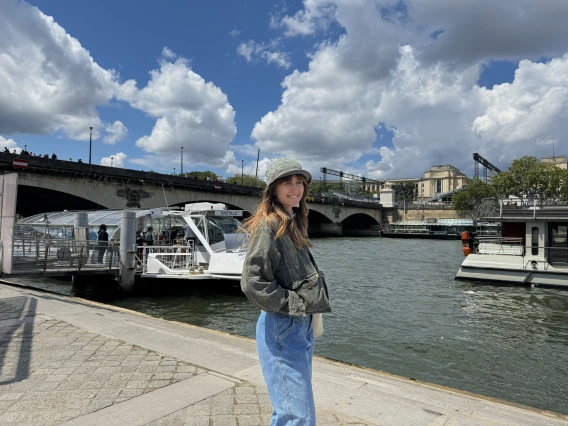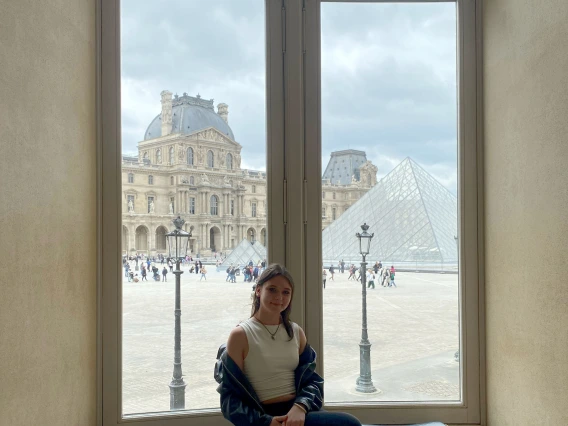Beth Weinstein
Programs
-
Architecture
-
Master of Architecture
-
Master of Science in Architecture
-
School of Architecture

CAPLA 203D
Areas of Expertise
-
Architecture and design
-
Critical spatial practices
-
Performance and Choreography in/of Space
-
Public space
-
Sites of Internment
-
Spatial Politics
Degrees
- Doctor of Philosophy, College of Arts and Media, University of Tasmania
- Master of Architecture, GSAPP, Columbia University
- Bachelor of Fine Arts, Magna Cum Laude, College of Visual and Performing Arts, Syracuse University
Links
Biography
Beth Weinstein’s practice and research move between the architectural and the performative, and across scales from drawing to performance-installations to urban interventions, investigating spatial manifestations and invisibilities of political and environmental issues. Her practice-based doctoral research explored how performances of spatial labor, employing architecture’s instruments (text, drawings and models), can render ‘sensible’ (in)visibilities around architectures of internment. Co-founder of ReSI (Remembering Spaces of Internment), she continues to ask what forms of architecture, and associated invisibilities, are produced through executive order and under states of exception.
Beth is the author of Architecture + Choreography: Collaborations in Dance, Space and Time (Routledge 2024). The book examines the field of archi-choreographic experiments—unique interdisciplinary encounters and performed events generated through collaborations between architects and choreographers. The book includes forty case studies spanning four decades giving evidence of the range of motivations for embarking on these creative endeavors and diverse conceptual underpinnings, generative methods, objects of inquiry, and outcomes. She also curated the Collaborative Legacy of Merce Cunningham exhibition (2011-13) which was shown in several venues in the US and Europe. She has extensively published on performativity in and of public space, theater architecture, and scenography and she serves on the advisory editorial board of the Routledge Journal of Theater + Performance Design.
Beth is a registered architect and founded Architecture Agency in 2002 after more than a decade of practice in the offices of Jean Nouvel, Asymptote, SOM and others. She has coordinated and taught undergraduate and graduate design studios; capstone; critical inquiry; history, theory and techniques of representation; building technologies; and workshop-seminars exploring performance, politics and public space. In recent courses, she and her students have examined Paris through lenses of empire and postcolony and have reimagined social and ecological architectures and infrastructures along NYC’s East River. She has lectured internationally, taught at ENSA Paris-Malaquais, the Ecole Spéciale d’Architecture (ESA), Confluence Institute and Columbia University in Paris, as well as Columbia’s GSAPP, Rensselaer Polytechnic Institute, Pratt Institute, and Parsons/The New School for Design. At the University of Arizona she is a faculty affiliate of the School of Art, of the Social, Cultural, and Critical Theory GIDP (SCCT), and Arizona Institutes for Resilience (AIR).
Courses
- ARC 195b Why Design Matters (BA.DAP)
- ARC 435/535 Forms of Critical Inquiry and Expression
- ARC 451p Architecture + Performance
- ARC 497 Project Inquiry
- ARC 498 Capstone Studio
Select Publications
- Weinstein, B. (2022) Forensics and Fora: Reconstructing and Re-membering the Centre d’Identification de Vincennes (CIV), Empower: Proceedings from the 110th ACSA Annual Meeting.
- Weinstein, B. (2020) Performing spatial labour : rendering sensible (in)visibilities around architectures of internment. PhD, Creative Arts and Media, University of Tasmania.
- Weinstein, B. (2020) Installing Performances of Spatial Labour, Platform: Journal of Theatre and Performing Arts 14, 1&2, 117-130.
- Weinstein, B. (2020) Erasing, Obfuscating, and Teasing out from the Shadows: Performing/Installing the Camps’ Invisibilities, Performance Research Journal (PRJ) 24.7: On Disappearance, 23-31.
- Weinstein, B. (2020) Choreographies of Spatial Labor as Critical Spatial Practice, Critical Practices in Architecture: The Unexamined, Jonathan Bean, Susannah Dickinson, and Aletheia Ida, Editors, Cambridge Scholars Publishing.
- Weinstein, B. (2019) Performances of Spatial Labor: Rendering the (In)visible Visible, Journal of Architectural Education, Work 73:2, 230-239.
- Weinstein, B. (2018) Bringing Performativity into Architectural Pedagogy, Performing Architectures: Contemporary Projects, Practices and Pedagogies, Andrew Filmer and Juliet Rufford, Editors, Methuen Drama – Engage Series.
- Weinstein, B. (2017) Stage and Auditorium, The Routledge Companion to Scenography, Arnold Aronson, Editor.
- DOUGLAS, M., WEINSTEIN, B and OLIVER, J. (2015) SHUTTLING, Journal for Artistic Research (JAR), 9, Dec. 2015.
- Weinstein, B. (2013) Turned Tables: Public as Performer in Jean Nouvel’s Pre-Performance Spaces, Architecture as a Performing Art, Marcia F. Feuerstein and Gray Read, Editors, Ashgate Press, 163-176.
- Ground|Water: The Art, Design + Science of A Dry River. (2012) Ellen McMahon, Ander Monson, and Beth Weinstein, Editors. Tucson : Confluencenter for Creative Inquiry/University of Arizona Press.
- Weinstein, B. (2012) Performance Space: Distributed and Consolidated, Disappearing Stage: Reflections on the 2011 Prague Quadrennial, Arnold Aronson, Editor, The Theater Institute, 60-73.
- Weinstein, B. (2013), Performing Architectures: Closed and Open Logics of Mutable Scenes, Performance Research Journal 18.3 : On Scenography.
- Weinstein, B. (2011), SHiFT: A Performed Re-interpretation of Visionary Theater. Journal of Architectural Education, 64:2, 87-98.
- Weinstein, B. (2008), Flamand and his Architectural Entourage. Journal of Architectural Education 61:4, 25-33.



